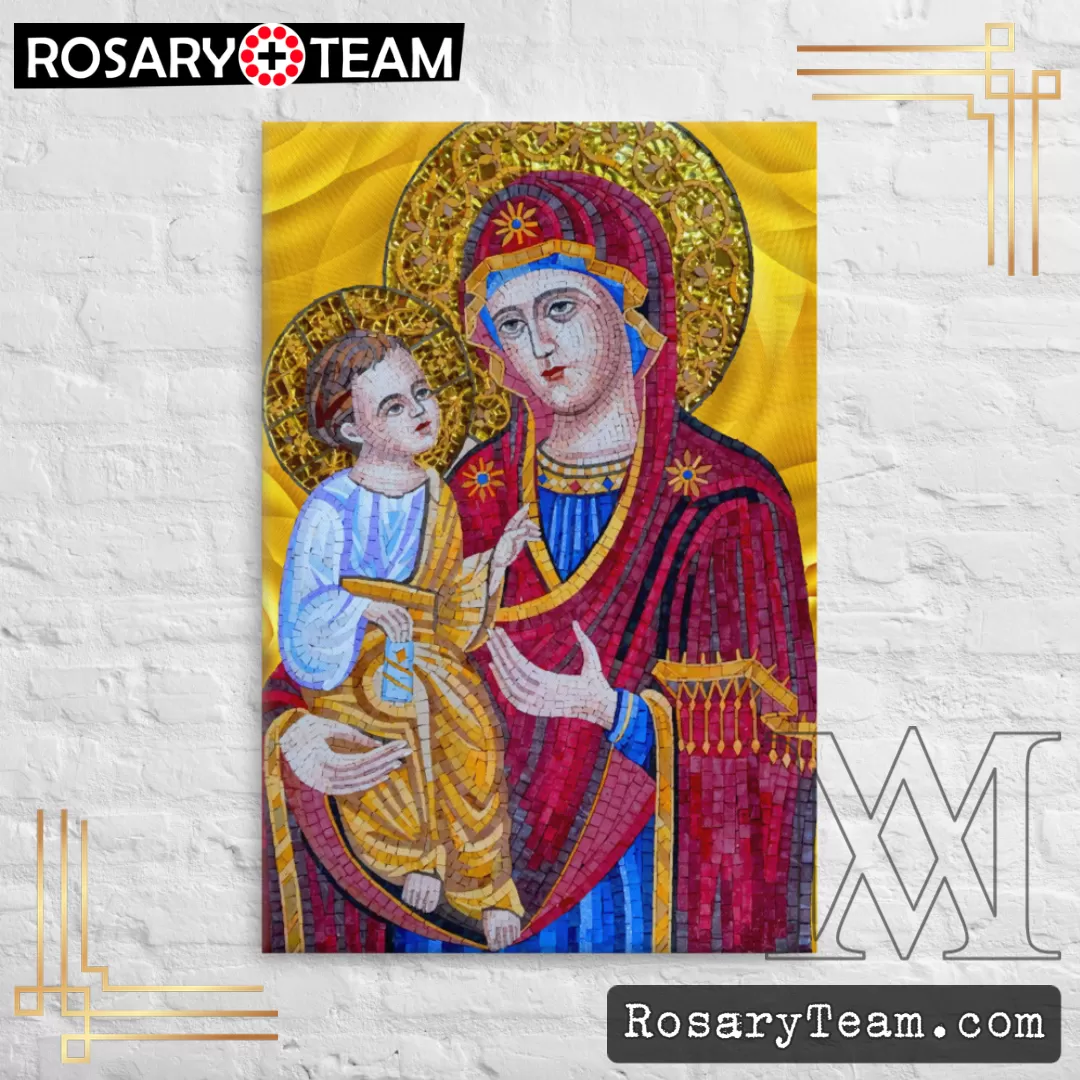SECTION TWO THE TEN COMMANDMENTS
- SECTION TWO THE TEN COMMANDMENTS
From The Catechism of the Catholic Church – rosary.team
Original Link: https://www.vatican.va/archive/ENG0015/__P78.HTM

From The Catechism of the Catholic Church – rosary.team
Original Link: https://www.vatican.va/archive/ENG0015/__P78.HTM

889
In order to preserve the Church in the purity of the faith handed on by the
apostles, Christ who is the Truth willed to confer on her a share in his own
infallibility. By a “supernatural sense of faith” the People of God,
under the guidance of the Church’s living Magisterium, “unfailingly
adheres to this faith.”417
From The Catechism of the Catholic Church – rosary.team
Original Link: https://www.vatican.va/archive/ENG0015/__P2A.HTM

474
By its union to the divine wisdom in the person of the Word incarnate, Christ
enjoyed in his human knowledge the fullness of understanding of the eternal
plans he had come to reveal.108 What he admitted to not knowing in this
area, he elsewhere declared himself not sent to reveal.109
From The Catechism of the Catholic Church – rosary.team
Original Link: https://www.vatican.va/archive/ENG0015/__P1J.HTM

God creates
by wisdom and love
From The Catechism of the Catholic Church – rosary.team
Original Link: https://www.vatican.va/archive/ENG0015/__P19.HTM

1200
From the first community of Jerusalem until the parousia, it is the same
Paschal mystery that the Churches of God, faithful to the apostolic faith,
celebrate in every place. the mystery celebrated in the liturgy is one, but the
forms of its celebration are diverse.
From The Catechism of the Catholic Church – rosary.team
Original Link: https://www.vatican.va/archive/ENG0015/__P3C.HTM

2267
Recourse to the death penalty on the part of legitimate authority, following a fair trial, was long considered an appropriate response to the gravity of certain crimes and an acceptable, albeit extreme, means of safeguarding the common good.
From The Catechism of the Catholic Church – rosary.team
Original Link: https://www.vatican.va/archive/ENG0015/__P7Z.HTM

269
The Holy Scriptures repeatedly confess the universal power of God. He is called
the “Mighty One of Jacob”, the “LORD of hosts”, the
“strong and mighty” one. If God is almighty “in heaven and on
earth”, it is because he made them.105 Nothing is impossible with
God, who disposes his works according to his will.106 He is the Lord of
the universe, whose order he established and which remains wholly subject to
him and at his disposal. He is master of history, governing hearts and events
in keeping with his will: “It is always in your power to show great strength,
and who can withstand the strength of your arm?107
From The Catechism of the Catholic Church – rosary.team
Original Link: https://www.vatican.va/archive/ENG0015/__P18.HTM

1853
Sins
can be distinguished according to their objects, as can every human act; or
according to the virtues they oppose, by excess or defect; or according to the
commandments they violate. They can also be classed according to whether they
concern God, neighbor, or oneself; they can be divided into spiritual and
carnal sins, or again as sins in thought, word, deed, or omission. the root of
sin is in the heart of man, in his free will, according to the teaching of the
Lord: “For out of the heart come evil thoughts, murder, adultery,
fornication, theft, false witness, slander. These are what defile a man.”128
But in the heart also resides charity, the source of the good and pure works,
which sin wounds.
From The Catechism of the Catholic Church – rosary.team
Original Link: https://www.vatican.va/archive/ENG0015/__P6B.HTM

946
After confessing “the holy catholic Church,” the Apostles’ Creed adds
“the communion of saints.” In a certain sense this article is a
further explanation of the preceding: “What is the Church if not the
assembly of all the saints?”477 The communion of saints is the
Church.
From The Catechism of the Catholic Church – rosary.team
Original Link: https://www.vatican.va/archive/ENG0015/__P2B.HTM

2196
In response to the question about the first of the commandments, Jesus says:
“The first is, ‘Hear, O Israel: the Lord our God, the Lord is one; and you
shall love the Lord your God with all your heart, and with all your soul, and
with all your mind, and with all your strength.’ the second is this, ‘You shall
love your neighbor as yourself.’ There is no other commandment greater than
these.”2
The apostle St. Paul reminds us of this: “He who loves his neighbor has
fulfilled the law. the commandments, ‘You shall not commit adultery, You shall
not kill, You shall not steal, You shall not covet,’ and any other commandment,
are summed up in this sentence, ‘You shall love your neighbor as yourself.’
Love does no wrong to a neighbor; therefore love is the fulfilling of the
law.”3
From The Catechism of the Catholic Church – rosary.team
Original Link: https://www.vatican.va/archive/ENG0015/__P7Q.HTM